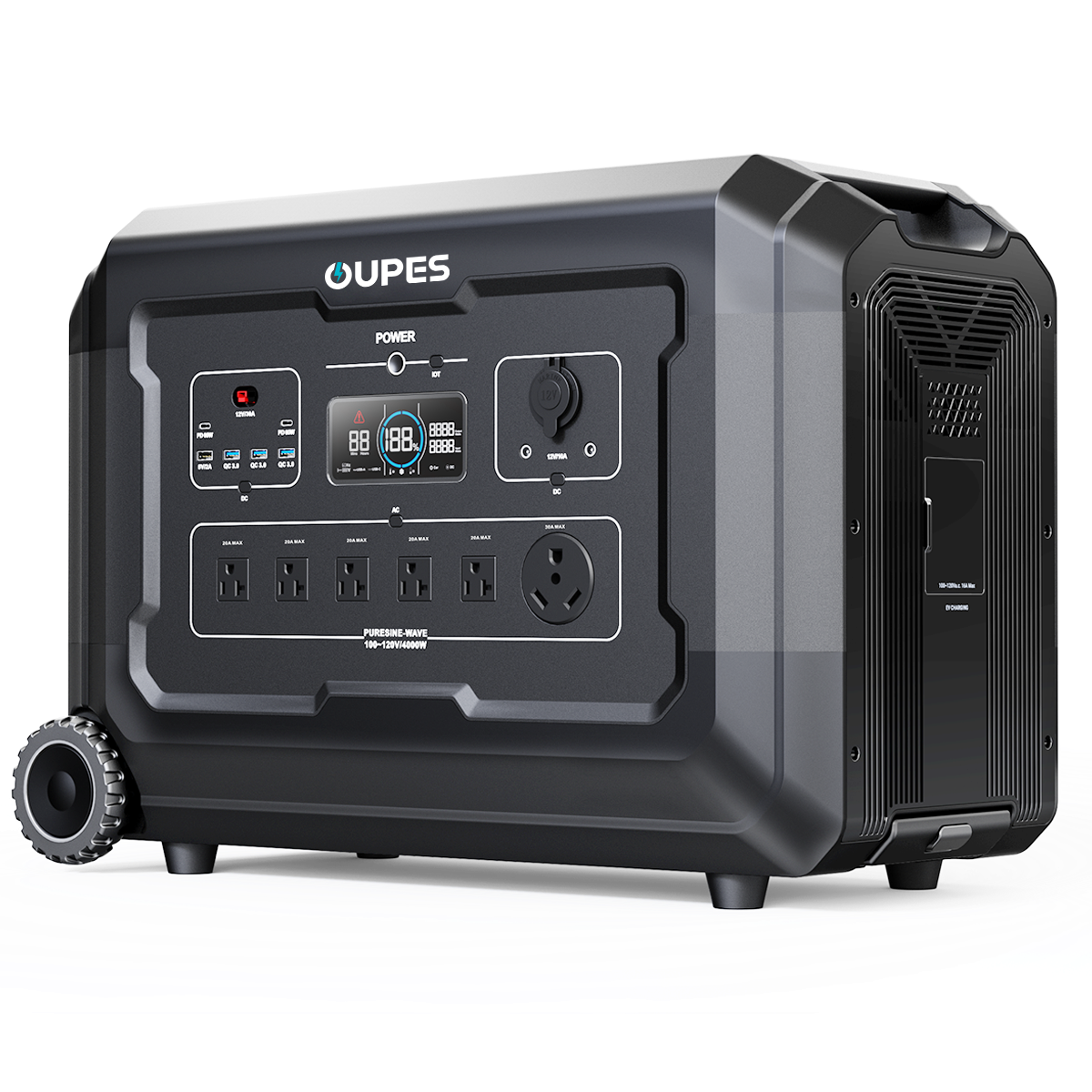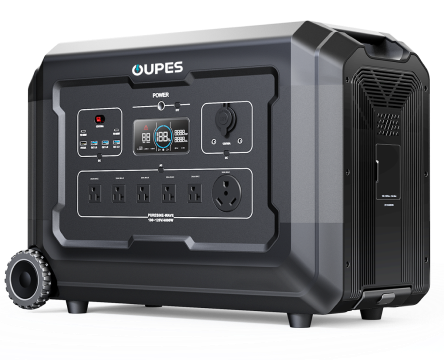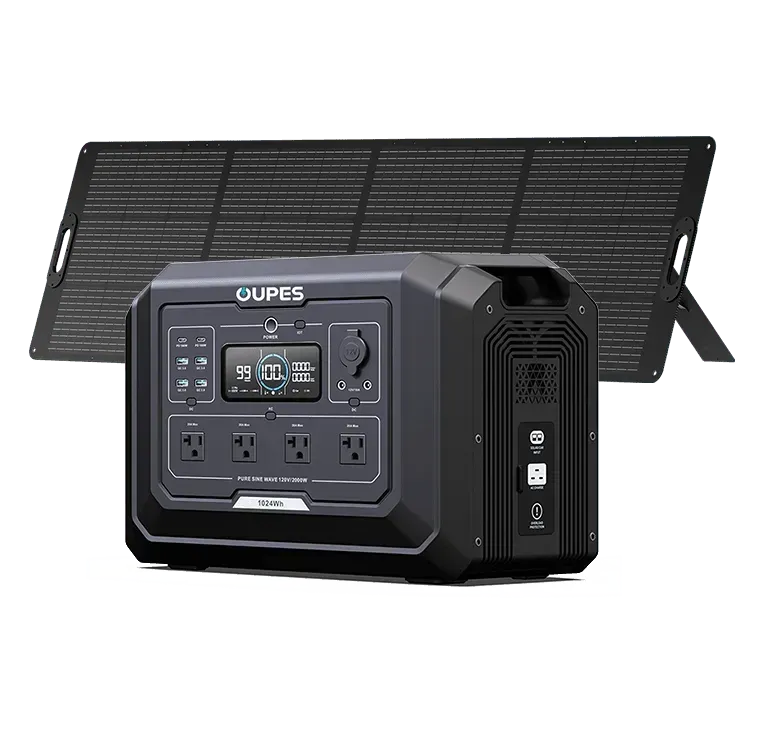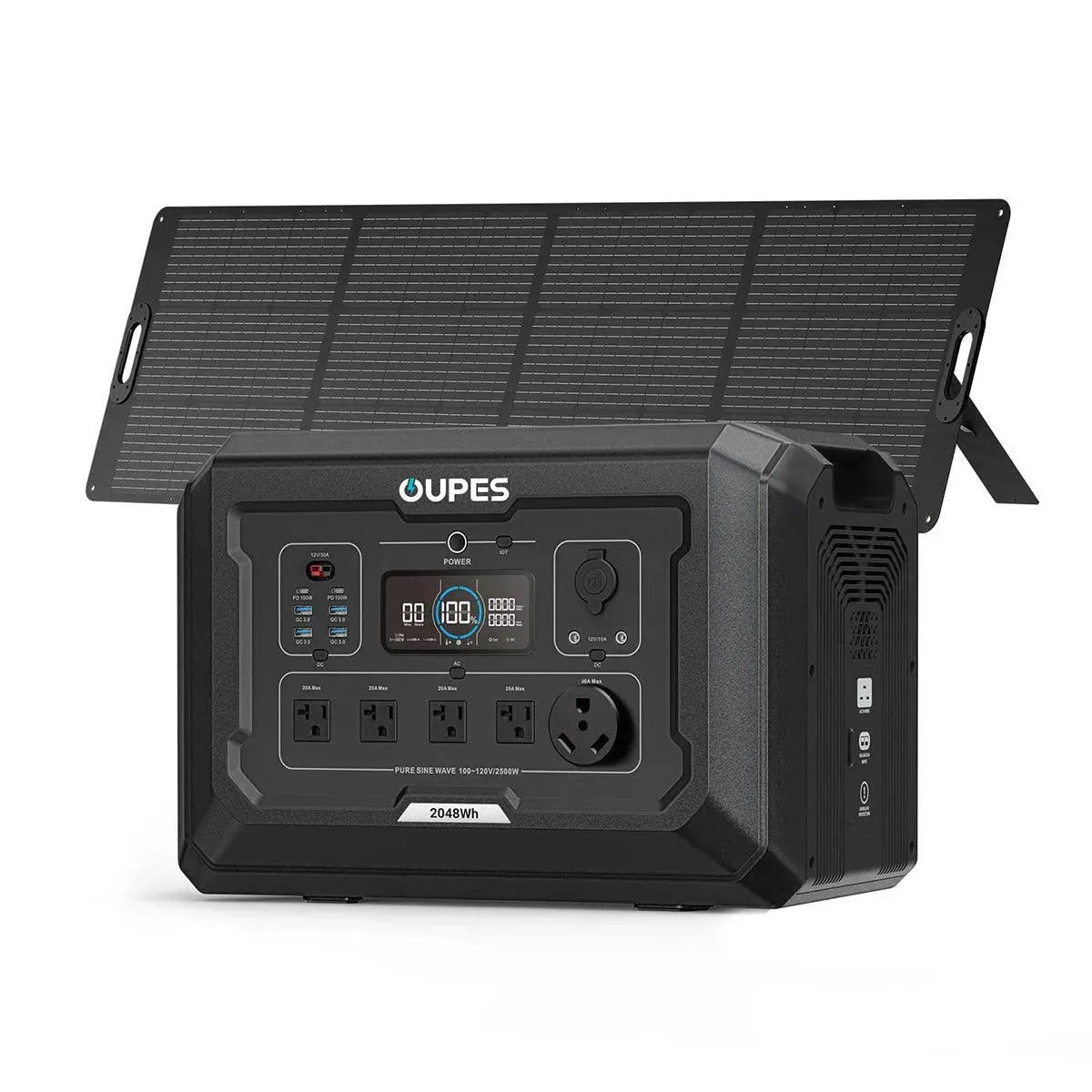
TL;DR / Key Takeaways
- Portable solar generators provide clean, quiet, and renewable energy for both home backup and outdoor needs.
- Ideal for emergencies, camping, and daily use, they ensure reliable power without fuel dependence.
- Capacity and inverter size determine which appliances can be powered and for how long.
- Pairing with solar panels extends runtime and makes them more sustainable for long-term use.
- OUPES offers efficient, safe, and expandable portable solar generators designed for residential and outdoor applications.
Introduction
As homeowners increasingly look for sustainable and reliable backup power, portable solar generators are becoming a popular choice. Unlike traditional fuel-powered units, they deliver clean and quiet energy, making them suitable for emergencies, off-grid living, and everyday convenience. This article explores how portable solar generators work, when they are most useful, and how to select the right system for your household.
How Portable Solar Generators Work
A portable solar generator typically consists of three main components:
- Solar Panels: Capture sunlight and convert it into electricity.
- Battery Storage: Stores energy for use during the day or at night.
- Inverter: Converts stored DC power into AC electricity for household appliances.
This combination ensures continuous availability of power without fuel reliance.
Scenarios Where a Portable Solar Generator Helps
Portable solar generators shine in both planned and emergency situations:
- Emergency Power: Keep lights, refrigerators, and medical equipment running during outages.
- Outdoor Adventures: Ideal for camping, tailgating, or RV trips without noisy gas generators.
- Everyday Savings: Offset electricity usage by powering small appliances during peak hours.
- Sustainable Living: A step toward reducing carbon emissions and dependence on fossil fuels.
Choosing the Right Size for Your Home
The capacity of a solar generator is measured in watt-hours (Wh), while the inverter size determines the maximum wattage it can deliver at once. Matching these to your appliance needs ensures smooth operation.
| Appliance | Average Wattage | Daily Energy Need |
|---|---|---|
| LED Lights (5 bulbs) | 50 W | 200 Wh |
| Mini Fridge | 100 W | 800 Wh |
| Wi-Fi Router | 15 W | 120 Wh |
| Laptop | 60 W | 240 Wh |
For basic essentials, a generator with 1000–1500Wh capacity is sufficient. To support larger appliances like refrigerators and microwaves, aim for 2000–3000Wh or higher.
Portable Solar Generator Specifications
Here’s a quick comparison of different generator sizes and their capabilities:
| Capacity | Inverter Size | Suitable Uses |
|---|---|---|
| 500–1000Wh | 500–800W | Lights, phones, routers, small electronics |
| 1500–3000Wh | 1000–2000W | Mini fridge, laptops, fans, TVs |
| 3000Wh+ | 2000–4000W | Refrigerator, microwave, power tools, medical devices |
Key Benefits for Households
- Quiet Operation: No disruptive noise compared to fuel-powered units.
- Eco-Friendly: Generates renewable power and reduces carbon footprint.
- Safe Indoors: No fumes, making it safe for home use.
- Low Maintenance: Minimal upkeep compared to traditional generators.
Why Choose OUPES
OUPES portable solar generators are designed with modern households in mind. Featuring advanced LiFePO4 battery technology, expandable capacity, and multiple charging options, they deliver both safety and performance. Whether for emergencies or outdoor living, OUPES provides reliable solutions to keep your home powered anytime, anywhere.
FAQ
Can a portable solar generator run a whole house?
It can power essentials, but large homes may require multiple units or expandable systems.
How long can a solar generator run household appliances?
Runtime depends on battery capacity and appliance load. For example, a 2000Wh unit can run a fridge for ~20 hours.
Do portable solar generators work at night?
Yes, stored energy in the battery can be used at night.
How long does it take to recharge?
Depending on solar panel size and sunlight, recharging can take 4–8 hours on average.
What appliances should I prioritize during an outage?
Essential appliances like refrigerators, medical devices, lights, and communication equipment should be prioritized.
Are portable solar generators weather-resistant?
Most units are durable but should be protected from heavy rain for longevity.
Conclusion
Portable solar generators are a practical investment for households seeking sustainable, flexible, and reliable energy solutions. With the ability to support both emergencies and daily living, they provide peace of mind and energy independence. OUPES offers advanced models that combine portability with high performance, ensuring your home stays powered—on the go and in a pinch.




























